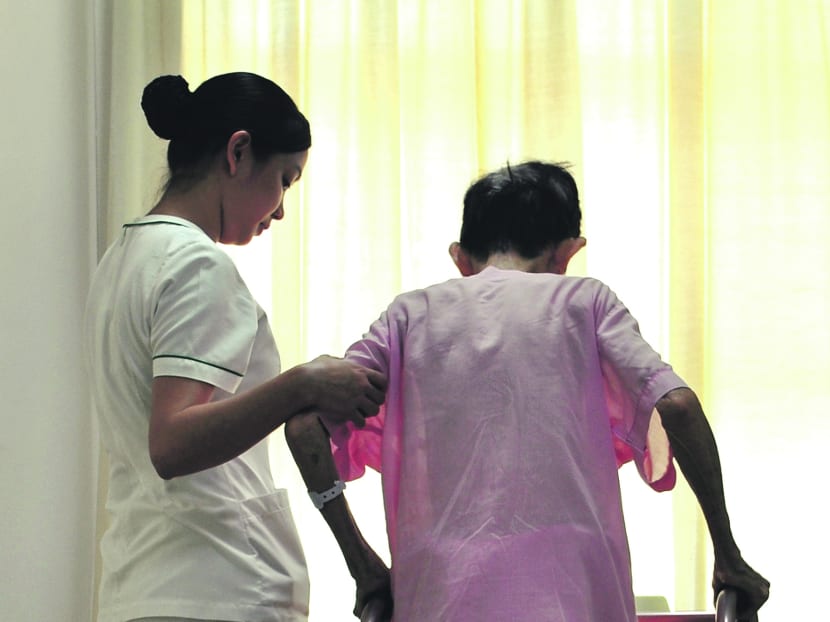Experts call for reform of healthcare financing system

Doctors say insurance is not comprehensive enough and a balanced healthcare financing structure of taxes, insurance and savings is needed. TODAY file photo
SINGAPORE — Prominent doctors at a forum on healthcare policy yesterday evening urged the Government to reform the healthcare financing structure and spend more, with National University of Singapore (NUS) Associate Professor Paul Tambyah asserting that Singapore’s core financing system of the “3Ms” covered just 15 per cent of total healthcare expenditure.
About 32 per cent came from out of pocket expenses, he noted, with the rest coming from corporate insurance among others. The “3Ms” comprise compulsory Medisave savings, MediShield insurance and Medifund subsidies for the poor. Dr Tambyah was speaking in his personal capacity.
Professor Phua Kai Hong, an expert on healthcare policy and management at the Lee Kuan Yew School of Public Policy, agreed, saying that the 15 per cent figure for MediSave, MediShield and Medifund needs to be raised.
“We need a balanced healthcare financing structure of taxes, insurance and savings. Insurance, especially for limited catastrophic illnesses, is not comprehensive enough,” said Prof Phua at the forum organised by Tembusu College in University Town, NUS, which saw 200 students and healthcare professionals in attendance.
Prof Phua also felt that healthcare financing is too skewed towards out of pocket expenses, partly driven by certain practices such as hospitals acquiring new technology and passing the costs on to patients. He warned that demand from Singapore’s ageing population will exacerbate the problem if the balance is not tweaked.
The comments came as Health Minister Gan Kim Yong signalled in December that a review to keep healthcare affordable will be done, the likely outcome of which the Government will take on a larger share of patient bills.
Other panellists at the forum, including Dr Lam Pin Min, the chair of the Government Parliamentary Committee for Health, and Principal Consultant of Insights Health Associates Jeremy Lim agreed that Government expenditure needs to go up.
Dr Lim, a former health policy maker, referred to a one-time World Health Organisation ranking of member countries’ healthcare systems, which ranked Singapore a respectable sixth. But the Republic did not fare as well in the category of financial fairness, noted Dr Lim.
“For many years, the principle of nothing should be provided free has dominated Singapore. But healthcare is a necessary consumption. If we don’t provide enough healthcare, we won’t have productive workers on the streets,” he said.
But Dr Lam pointed out that more money spent may not necessarily equate better health.
He noted that Singapore spends less than 4 per cent of its Gross Domestic Product on healthcare, while the United States spends 14 to 16 per cent, but the Republic fares better in life expectancy, infant mortality rate, among other indicators.
Dr Tambyah proposed using a single payer system, used by other countries such as France, whereby everyone pays the same level of premiums regardless of risk levels.
The other panellists questioned the suggestion, with Dr Phua arguing it would not work as it is “politically unsustainable” — it would be tough to collect additional premiums when they need to be increased, he said.






